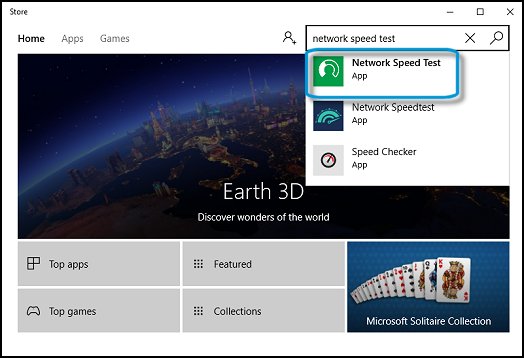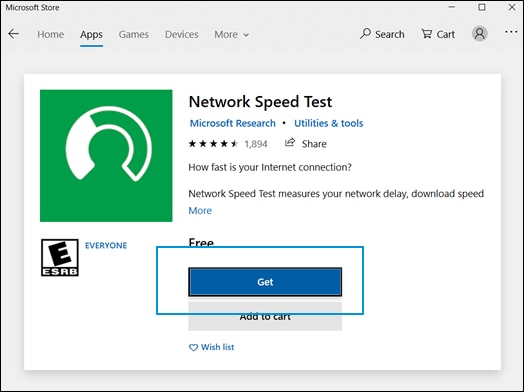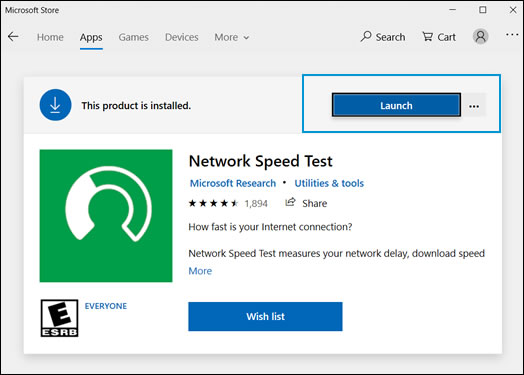-
×InformationNeed Windows 11 help?Check documents on compatibility, FAQs, upgrade information and available fixes.
Windows 11 Support Center. -
-
×InformationNeed Windows 11 help?Check documents on compatibility, FAQs, upgrade information and available fixes.
Windows 11 Support Center. -
- HP Community
- Desktops
- Desktop Wireless and Networking
- Network card Wireless speed - Wireless-AC 3165

Create an account on the HP Community to personalize your profile and ask a question
11-21-2019 10:08 AM - edited 11-21-2019 10:17 AM
As of late I'm trying to switch from my LAN cable to using the Wi-Fi, since currently I have an old (sorta broken) LAN cable. Haven't used Wi-Fi for a while, but the speed seems off. When I put my phone or any other wireless device next to my computer, it has a download speed around 250 Mbps, yet when I try it on the computer I get around 30 Mbps (edit: sometimes 40 Mbps) as a max.
Is this how fast it should go, or is something wrong 😕?
In order to tackle this, I have identified (using device manager) that for Wi-Fi I am using the Intel Dual Band Wireless-AC 3165, of which I found this document which describes "it delivers up to 433 Mbps"
That's pretty OK right?
Next to that, I looked back upon the computer specifications which tells us that we are dealing with a
Wireless LAN 802.11a/b/g/n/ac featuring Dual-band (2.4 GHz and 5.0 GHz).
What do these specifications tell us about speed?
The specifications tell us that it has:
- Interface: M.2
- Transmission standards: 802.11 a/ b/g/n/ac
- Dual band: 2.4 GHz and 5.0 GHz
Isn't 802.11 n like the fastest transmission standard? 🤔
What I have tried thusfar is:
- Updating the drivers on the Intel(R) Dual Band Wirelss-AC 3165
- Swapping some values around in the device manager to change it to 802.11 n
- Let HP run it's checks via the HP Support Assitant
- Let HP run it's Hardware Testing for Network
11-21-2019 02:03 PM
UPDATE:
After updating some more settings in the device manager by going to Properties -> Advanced:
- Preferred band -> 5 GHz
The speed has gone up to 100 Mbps. 😅 Note that the router tells us that the TX/RX Rate (Mbps) is going from 150/90 up to 150/150 and it IS indeed using 5 GHz, yet I suspect that somehow the package bundling is disabled.
From all the options (no ad-hoc options) I noted that:
- 802.11 a/b/g wireless mode -> Dual-band 802.11a/b/g appears to be the best choice
- 802.11 n/ac wireless mode -> 802.11 n appears to be the best mode
- MIMO Power Save Mode -> No SMPS just to be sure (is it legacy?)
- Throughput booster -> Off didn't do much
- Package coalescing -> On no significant change
- Roaming aggressiveness -> Medium (default) no big changes
Any other options were mainly about encryption (which doesn't make any significant changes) or power saving modes (which shouldn't take up like the remaining 150 Mbps). Again, feeling like somehow the packages aren't bundled yet.
Some extra information about the current driver:
Date : 26/08/2019
Version: 19.51.24.3
Signer: Microsoft Windows Hardware Compatability Publisher
11-21-2019 02:56 PM
UPDATE:
After looking some more at the drivers I noted this error ( a second inbetween the update and applying it):
Event 411, Kernel-PnP
Device PCI\VEN_8086&DEV_3165&SUBSYS_40108086&REV_81\4&2a29b96e&0&00E0 had a problem starting.
Driver Name: oem46.inf
Class Guid: {4d36e972-e325-11ce-bfc1-08002be10318}
Service: Netwtw04
Lower Filters:
Upper Filters: vwifibus
Problem: 0x15
Problem Status: 0x0
and as an XML:
- <Event xmlns="<a href="<a href="http://schemas.microsoft.com/win/2004/08/events/event" target="_blank">http://schemas.microsoft.com/win/2004/08/events/event</a>" target="_blank"><a href="http://schemas.microsoft.com/win/2004/08/events/event</a" target="_blank">http://schemas.microsoft.com/win/2004/08/events/event</a</a>>">
- <System>
<Provider Name="Microsoft-Windows-Kernel-PnP" Guid="{9c205a39-1250-487d-abd7-e831c6290539}" />
<EventID>411</EventID>
<Version>0</Version>
<Level>2</Level>
<Task>0</Task>
<Opcode>0</Opcode>
<Keywords>0x4000000000000000</Keywords>
<TimeCreated SystemTime="2019-11-21T16:34:23.590113700Z" />
<EventRecordID>756</EventRecordID>
<Correlation />
<Execution ProcessID="4" ThreadID="26596" />
<Channel>Microsoft-Windows-Kernel-PnP/Configuration</Channel>
<Computer>DESKTOP-REVHIR5</Computer>
<Security UserID="S-1-5-18" />
</System>
- <EventData>
<Data Name="DeviceInstanceId">PCI\VEN_8086&DEV_3165&SUBSYS_40108086&REV_81\4&2a29b96e&0&00E0</Data>
<Data Name="DriverName">oem46.inf</Data>
<Data Name="ClassGuid">{4d36e972-e325-11ce-bfc1-08002be10318}</Data>
<Data Name="ServiceName">Netwtw04</Data>
<Data Name="LowerFilters" />
<Data Name="UpperFilters">vwifibus</Data>
<Data Name="Problem">0x15</Data>
<Data Name="Status">0x0</Data>
</EventData>
</Event>
which can also be found in this (unsolved?) post. I doubt if this is relevant.
11-24-2019 10:49 AM
Thank you for posting on the HP Support Community.
I appreciate your efforts to try and resolve the issue. Let's try a few more methods in order to isolate the issue if its a hardware related issue then you can ship the unit in for a physical diagnosis.
Use one of the following methods to test your Internet connection speed both before and after performing the troubleshooting steps in this document to see whether your connection speed improves.
-
In Windows, search for and open the Microsoft Store.
-
In the Microsoft Store, search for network speed test, and then select the Network Speed Test app in the search results.

-
Click Get, and wait while Windows downloads and installs the app.

-
Select Launch to open the app.
If requested to let the app access your precise location, click Yes.
NOTE: You can change this later in the Settings app.

-
Click Start to run the test.

-
When the test is complete, the results display on the screen showing the connection type, and download and upload speeds, as well as other network information.

Next run Wireless Module test:
Use the following steps to open the Component Tests menu.
- Hold the power button for at least five seconds to turn off the computer.
- Turn on the computer and immediately press Esc repeatedly, about once every second. When the menu appears, press the F2 key.
- On the main menu, click Component Tests.
- The Component Tests menu displays.
- Wireless Module Test - This test checks that the BIOS detects the wireless module and that it is enabled.
To run the test, click the Wireless Module, and then click Run once.
- The Wireless Module Test takes 30 seconds to complete.
Hope this helps! Keep me posted for further assistance.
Please click “Accept as Solution” if you feel my post solved your issue, it will help others find the solution.
ECHO_LAKE
I am an HP Employee
11-25-2019 07:05 AM - edited 11-25-2019 07:06 AM
@Echo_Lake
Thank you for your reply.
After checking in the BIOS and testing using the Wireless Module Test it PASSED as well as for the Component Check, which was noted below it.
Meanwhile I haven't been sitting still and inquiring about the same issue at the Intel Forums to check if they know what to do.
No succes thusfar.
(Note that the Network Speed Test app gave me way worse results than speedtest.net, since I cannot install this on other mobile devices I will use this as a reference.)
Thanks for so far
